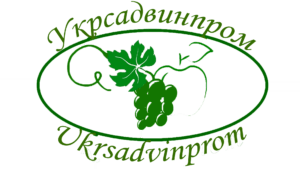
WINE&SPIRITS UKRAINE expo is one of the most significant events in the wine and alcohol industry of Ukraine. It is a platform for establishing business relations between wine and alcoholic beverage producers, retailers, sommeliers, restaurateurs, importers and distributors from Ukraine and abroad. In just a few days, WINE&SPIRITS UKRAINE will be held again at the Kyiv International Exhibition Center.
“Despite russian military in Ukraine, our business continues to work, and the national economy needs support. Interest in Ukrainian products and demand for them are growing both abroad and at the domestic market. We have just returned from ProWein international expo in Dusseldorf, where the national Wines of Ukraine stand was presented for the first time, and, in total, 12 Ukrainian wineries participated in the fair. It showed that our wines are successful all over the world, our export of this product is constantly growing, and our wines deserve the attention of both foreign and national consumers. We cannot waste time and opportunities, so we decided to hold our event this spring,” comments Viktoriya Agromakova, founder and organizer of WINE&SPIRITS UKRAINE.
The list of participants of the Wine&Spirits Ukraine exhibition currently includes 36 companies, but it is constantly updated. This year, for obvious reasons, only companies from Ukraine are taking part in the expo, among them are large, medium and craft winemakers, alcohol and beer producers. For them, this is a great opportunity to find new contacts and sign contracts with national retail chains, retail stores and HoReCa. For buyers, there is an opportunity to expand the range of quality Ukrainian wines, beer and spirits.
For the first time, the combined stands of the Association of Craft Winemakers of Ukraine and the Ukrainian Association of Craft Distillers will be presented. 10 manufacturers will showcase their products at each stand.
You can learn more about the participants here.
Durig the expo, Ukraine Wine&Spirits Awards international tasting competition will traditionally take place. The competition is held with the support and participation of the Association of Sommeliers of Ukraine and the International Association of Sommeliers in accordance with the standards of the International Organization of Grapes and Wine, OIV. The jury of the competition this time includes well-known Ukrainian wine experts, sommeliers, as well as buyers of retail chains.
A long-time partner of WINE&SPIRITS UKRAINE — the “UKRSADVYNPROM” union — will traditionally host the Wine&Spirits Congress at the exhibition. The head of the union, Volodymyr Pechko, emphasizes that this year the topic of the discussion panel is the issue of supporting the viticulture industry during war and post-war period. Participants of the discussion panel will learn more about potential and existing programs, projects and grants to support Ukrainian winegrowers and winemakers.
Whenl: March 30 from 12:00 to 14:00.
Where: pavilion 1A, conference hall #3.
During the expo, the Ukrainian Association of Craft Distillers will organize a round table on the topic of “Simplification of distillate production conditions for small producers”. The event will take place on March 30 from 3:00 p.m. to 5:00 p.m., pavilion 1A, conference hall #3.
It may also be interesting for industry representatives to visit the specialized events that will be held by WorldFood Ukraine. The organizers invite producers, associations, regional development agencies, advisory services, profile media and everyone who is interested in the development of partnerships and cooperation, to join the Round Table named “Partnerships in the food market: how to unite to develop?”
When: March 31, 11:00-13:00
Where: pavilion #1, entrance 1A, conference hall #3.
Specialists and market insiders, including Svitlana Tsybak, Head of the Association of Craft Winemakers of Ukraine, will discuss the opportunities and problems of uniting market players in the production, promotion, sales and export of food and beverages, as well as analyze successful national and international cases.
Registration of visitors online: https://wineandspirits.com.ua/visit/
More information about the events and participants of WINE&SPIRITS UKRAINE can be found on Facebook and Instagram pages.

Ukrainian winemaking needs state support to restore the industry that suffered from war and to promote it on international markets, says Volodymyr Pechko, head of the public union “Ukrsadvinprom”.
“Ukrainian winemaking has been on the verge of survival because of the war. A significant number of territories of Ukrainian vineyards, which are in the south of Ukraine, are mined by the aggressor, their restoration will require significant resources and time. We propose to work out a strategy of development of the winemaking industry and recognize viticulture as a priority branch of development,” he said in his opinion to the Interfax-Ukraine news agency.
Pechko noted that currently the winemaking industry, which suffered from the actions of the aggressor, is not included in any of the state support programs. Also, the industry does not have an approved development strategy and certain mechanisms of compensation for losses incurred.
However, according to the head of Ukrsadvinprom Ukrainian winemaking has a rather high export potential. His products are in demand on international markets, including due to the unprecedented support of Ukraine in the confrontation with the aggressor.
“We saw that the interest in Ukrainian wine is very high. We are a household name today and we need to win our “place on the shelf”. They want to see and buy Ukrainian wine in Europe, Asia and Africa. To have an effective breakthrough on international markets we need government participation in the promotion of Ukrainian wine,” Pechko said.
The head of “Ukrsadvynprom” reminded that Ukraine has restored the membership in the International Organization of Vine and Wine (OIV, OIV), which it had been a part of from 1997 to 2008, that opens new prospects for the Ukrainian wine-makers.
OIVW was founded in 2001. The organization became the successor of the International Grape and Wine Bureau, which existed since 1924. Its aims are protection of interests of the wine making industry and creation of favorable market conditions, harmonization and correspondence of analysis methods, struggle against fraud and unfair competition on the market. Ukraine became the 49th member state of IGOV.
Currently, Ukrainian scientists, including representatives of the scientific center “Tairiv Institute of Viticulture and Winemaking” actively work in the IGOV committees. NAAS of Ukraine.
As of February 1, 2022, the total area of vine plantations in Ukraine on all categories of farms amounted to 34.0 thousand hectares, the gross harvest of grapes – 257.5 thousand tons. However, because of the Russian aggression, almost 25% of the area under vineyards are temporarily occupied or are in the war zone.
Total in Ukraine there are 144 wineries, including 29 small producers of wine products.

Ukrsadvynprom has asked the Ministry of Agrarian Policy and Food of Ukraine to adapt the program of state support for horticulture for berry enterprises, as well as expand the list of wine making regions, Ukrsadvynprom members have said this at a press conference at Interfax-Ukraine.
“The markets of the United Arab Emirates and Singapore accept berries only in small packaging – 125 g. It is impossible to manually prepare large volumes of berries in packaging of 125 g each. Therefore, we need optical sorting and packing lines for blueberries. And it would be good if berry enterprises could claim compensation for purchasing sorting lines [as well as apple growing enterprises],” Taras Bashtanyk, the director general of Ukrainian Berries, said.
According to him, berry enterprises also need chambers with an adjustable gas environment, which allow them to store berries without loss of quality for up to 45 days. So producers will be able to sell berries after the harvest season, when the price is more profitable. Now the volumes of refrigerators with adjustable gas environment, which are provided for by the state support program, are too large for berry enterprises.
Bashtanyk also noted that, when exporting to remote markets, berry enterprises face logistical difficulties.
Ukrsadvynprom unites more than 170 enterprises from different regions of Ukraine.

Ukraine’s Verkhovna Rada has passed an amendment to the Tax Code, according to which the excise duty on fruit and berry wines is reduced to UAH 0.01 per liter, Head of the Ukrsadvynprom association Volodymyr Pechko has said. “The Verkhovna Rada reduced the excise duty on fruit and berry wines and equated it to the excise duty on grape wines. Previously, it was equated with liquor and vodka products. This industry was dilapidated when there was ‘draconian’ legislation. And now the conditions are optimal to resume production of fruit and berry wines,” he told Interfax-Ukraine. According to a comparative table, the tax rate on non-sparkling wines with 1.2-15% ABV will be UAH 0.01 per liter.
According to the head of Ukrsadvynprom, the parliament also agreed on changes, according to which, new producers of wine products will be considered the fourth group of taxpayers using the simplified taxation system.
As reported, the Cabinet of Ministers has increased government support for hop growing, laying of young gardens, vineyards and berries, from UAH 300 million in 2018 to UAH 400 million in 2019.
According to Pechko, this increase in state support is advisable, since in 2018 the industry will use all the allocated funds. “At the summer meeting the budget allocation committee of the Ministry of Agrarian Policy and Food allocated compensation only for planting material, and at a meeting in autumn refrigerators, shock freezing and sorting lines (except seedlings) will also be reimbursed for. Virtually all funds for gardening will be used,” he explained.
At the same time, the head of Ukrsadvynprom noted that to develop the industry, it is necessary to spend more funds on product processing. “We need to finance not only planting, but also processing, sorting and storing fruits and berries. In particular, funds should be allocated for processing – refrigerators, blast chilling chambers for berries, processing into new products – apple chips, dried goods, grape and fruit wine,” Pechko said.
He added that an increase in processing volumes in future will help fruit and berry producers in the years with large harvests. “This year the price of products of further processing – raspberries, currants, apples – has fallen. Purchase prices for apples, for example, at the plants were UAH 0.52/kg, raspberries some UAH 10-12/kg. This is a very low price, considering harvesting costs. The reduction in excise tax on fruit and berry wine will enable enterprises to process their products themselves,” the expert said.
As reported, the Verkhovna Rada redirected UAH 1 billion from the programs of state support for the agro-industrial complex to the Regional Development Fund. The total amount of state support for agriculture will be about UAH 6 billion. According to information on the website of the Ministry of Agrarian Policy and Food, as of November 16 some 35.8% of state support for the agro-industrial complex had been used. Out of UAH 300 million provided for hop growing and gardening, some UAH 101 million has been used.

Ukraine’s Verkhovna Rada has passed an amendment to the Tax Code, according to which the excise duty on fruit and berry wines is reduced to UAH 0.01 per liter, Head of the Ukrsadvynprom association Volodymyr Pechko has said. “The Verkhovna Rada reduced the excise duty on fruit and berry wines and equated it to the excise duty on grape wines. Previously, it was equated with liquor and vodka products. This industry was dilapidated when there was ‘draconian’ legislation. And now the conditions are optimal to resume production of fruit and berry wines,” he told Interfax-Ukraine.
According to a comparative table, the tax rate on non-sparkling wines with 1.2-15% ABV will be UAH 0.01 per liter.
According to the head of Ukrsadvynprom, the parliament also agreed on changes, according to which, new producers of wine products will be considered the fourth group of taxpayers using the simplified taxation system.
As reported, the Cabinet of Ministers has increased government support for hop growing, laying of young gardens, vineyards and berries, from UAH 300 million in 2018 to UAH 400 million in 2019.